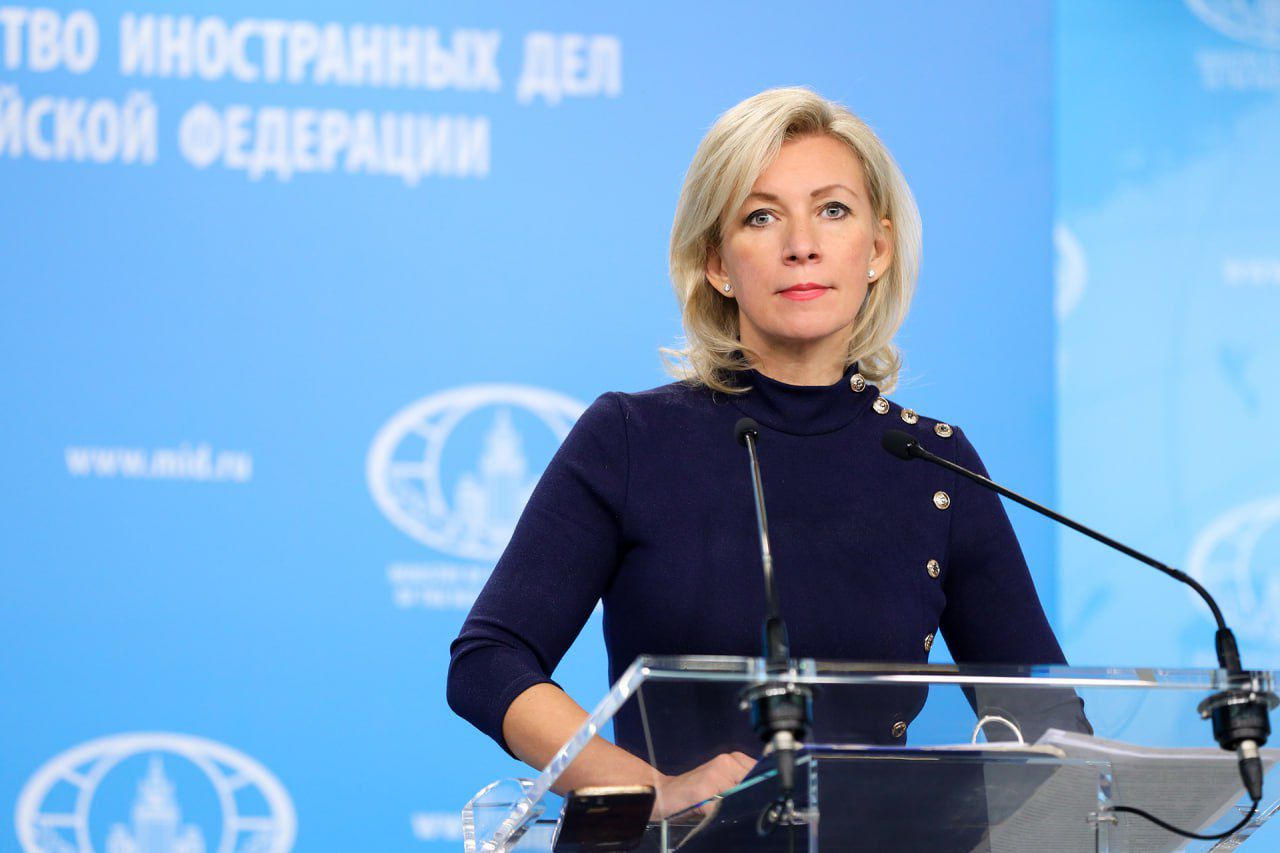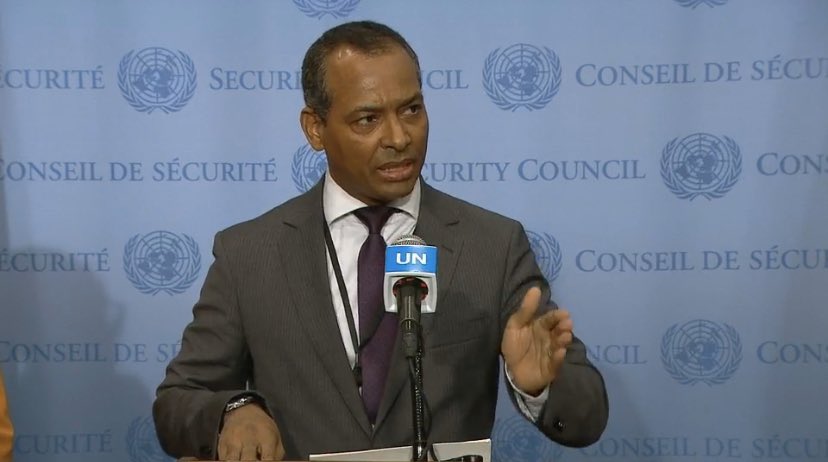
Maria Zakharova, Spokeswoman of the Russian Ministry of Foreign Affairs
by Maria Zakharova*
The US spin-doctors have driven themselves into a trap by claiming that the terrorist attack on the Crocus City Hall in Moscow was perpetrated by ISIS, a terrorist organisation banned in Russia.
It is also clear why they are doing this. Obviously, they have no other way out.

There is ample direct and indirect evidence of the current US administration’s involvement in sponsoring Ukrainian terrorism.
This includes billions of dollars and an unprecedented amount of arms invested in the Kiev regime, based on corruption schemes, where no accounts were submitted; the use of aggressive rhetoric towards Russia and rabid nationalism; a ban on peace talks on Ukraine and endless calls for the conflict to be settled by force; the refusal to discuss the Kiev regime’s years-long terrorist attacks; and massive media and political support for even the most horrible crimes committed by Zelensky.
Hence Washington’s daily effort to cover up for their charges in Kiev and the attempt to shift the blame away from themselves and the Zelensky regime they have nurtured by using the bogey of ISIS (an organisation banned in Russia). And here they have been caught in their own rusty trap.
What is ISIS?
In the past, Washington actively supported, armed and controlled the mujahideen in Afghanistan as part of its drive to oppose the Soviet Union. Former US Secretary of State Hillary Clinton, almost clapping her hands for joy, recalled how they decided to recruit the mujahideen and import the Wahhabi brand of Sunni Islam into Afghanistan to prevail over the USSR. Al-Qaeda emerged precisely from that Afghan campaign.
But let us leave Afghanistan for a while and turn to Iraq.
In 2003, the United States, using a false pretext, intervened militarily in Iraq, with the result that all members of the Ba’ath party, the backbone of Saddam Hussein’s army, police, and security forces, suddenly found themselves jobless and without means of sustenance.
It was this group of young and experienced military professionals, all of them skilled, that later formed the cadre of a new extremist organisation.
In April 2006, The Washington Post found classified Pentagon documents showing that from 2004 to 2006, US military propaganda had deliberately aggrandised Abu Musab al-Zarqawi, the first leader of an “insurgency” movement – Al-Qaeda in Iraq – making him appear to many Muslims as a defender of the faith.
In October 2006, the Consultative Meeting of the Mujahideen established a new jihadist group that brought together Al-Masri’s terrorists and other Islamists from the group known as the Islamic State of Iraq (ISI). Appointed as the leader of this new organisation was Abu Omar al-Baghdadi, whom the Americans, for some reason, had released from prison in Iraq not long before. QED!
He established close cooperation with the Islamists in Syria, who were fighting against the legitimate government of Bashar al-Assad. In April 2013, the expanded terrorist organisation was given a new name – the Islamic State of Iraq and the Levant (ISIS). In 2014, it declared its intention to establish a caliphate in Iraq and Syria.
The Americans decided to fight ISIS after all and formed a “coalition” for the purpose (if only after ISIS militants killed a number of US citizens).
So, it turns out that after Al-Qaeda, the Americans willingly or unwillingly had a hand in creating yet another monster, ISIS, which subsequently indulged in an orgy of horrible terrorist killings across the world.
Today, experts and retired US security officers are justly pointing to Washington’s decisive role in procreating ISIS and prolonging its further existence.
Now, let us look at Syria.
In 2015, in response to a request from the legitimate Government of Syria, Russia sent a unit of its Aerospace Forces to help the Syrian army fight the terrorists. This interfered with ISIS’ plans to impose its control over vast territories in Iraq and Syria, including Aleppo and Damascus.
An entire “terrorist international” – tens of thousands of militants from more than 80 countries – was working to achieve these goals. It was only Russian intervention that enabled the Syrian army to stop this threat and liberate most of the country from the terrorists.
President of Russia Vladimir Putin addressed the UN General Assembly session in 2015, suggesting that a united anti-ISIS front, modelled on the anti-Hitler coalition, should be created. The response was the West’s war face, not a delighted acceptance.
Far from helping us to fight ISIS, the United States was doing whatever it could to interfere with our effort. Interesting, isn’t it?
At the same time, a US-controlled extremist enclave, the so-called Al Tanf refugee camp, continues to exist in southeast Syria. It has become a haven for terrorists, providing them with training before they are sent to perform missions.
The White House clearly follows yet another tactical line in Syria, where ostensibly it has committed itself to sort the “moderate opposition” from the ISIS terrorists in a clear and informal manner.
I am referring, for example, to Jabhat Fatah al-Sham (the former Al-Nusra, actually a branch of Al-Qaeda in Syria) and other similar armed groups that eventually coalesced to form Hayat Tahrir al-Sham.
So, the rebranding is there, but no separation has taken place so far. In all evidence, this is how Washington has planned the whole thing: it wants the conflict to drag on, multiplying the number of victims, while preventing that seat of international terrorism from being definitively eliminated.
Oddly enough, ISIS has adjusted its plans in recent years and now attacks mostly enemies of the United States, such as the Taliban in Afghanistan, the Iranians, the legitimate authorities in Syria, and Russia. This is only what lies on the surface and can be gleaned from world news reports.
One more thing: in 1992, the Americans imposed a “democratic electoral process” on the Palestinians. Differences between them culminated in the creation, via democratic elections, of a political party, Hamas, in the Gaza Strip.
It transpires from the recently declassified correspondence between US Department of State officials that back in 2021, Biden unfroze $360 million in payments to Hamas, which were channeled through the notorious USAID agency.
President Donald Trump suspended the payments, whereas Joe Biden has ordered that they be resumed. The result is there for everyone to see. One nice detail is that Israel seems to be America’s closest ally and it is shouting its head off seeing the doings of Hamas.
Is there any logic, you would ask?
It lies in the money and power. Moreover, in a situation where there is an international legal ban on direct interventions, the ulterior motive is to sow “controlled chaos” and rehash the world order with the help of terrorists.
And now, attention, my question to the White House: Was it really ISIS? Won’t you change your mind?
- Maria Zakharova is Russian MFA Spokeswoman









